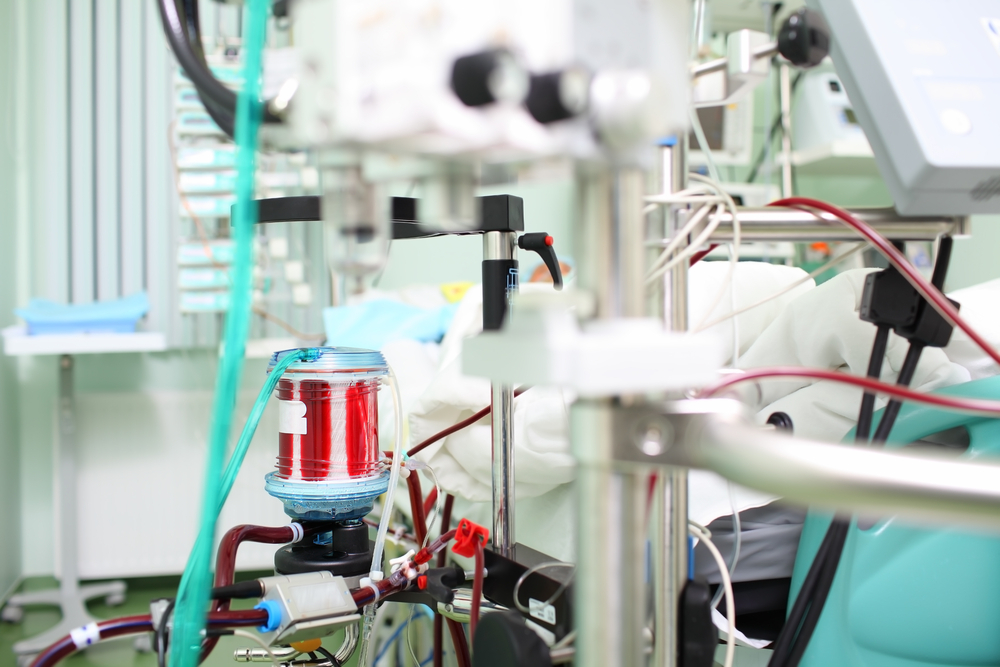New frontiers in the treatment refractory cardiogenic shock post-cardiac arrest

ARTICLE REVIEW
Veno Arterial Extracorporeal Membrane Oxygenation (VA-ECMO) might be an effective organ support technique for patients suffering from refractory cardiogenic shock post cardiac arrest, leading to Multi Organ Failure (MOF).
de Chambrun et al. [1] performed a retrospective analysis of data prospectively collected on 94 patients treated with femoral-femoral VA-ECMO due to refractory cardiogenic shock post-cardiac arrest (CA). Predictive neurological work-ups were undertaken for patients un-weaned from VA-ECMO to establish the implantation of long-term left ventricle assist device or cardiac transplantation.
28-day and hospital survival rates were 32% and 28% respectively. Among the 11 patients with confirmed brain death, five became multiple organ donors. 27% of patients were alive at 1-year follow-up with good neurological outcomes. Predictors of hospital mortality were international normalised ratio (INR) >2.4, admission SOFA score >14 and shockable rhythm. Patients with pre-ECMO SOFA scores ≤14 had 50 % 1-year survival. INR and admission SOFA score were independent predictors of 1-year mortality
Conclusions
VA-ECMO is feasible in persisting acute myocardial dysfunction post cardiac arrest with 1-year outcomes comparable to patients not requiring ECMO implantation. Admission SOFA score represents a good predictor of mortality. Obviously, the retrospective and monocentric design of the study represents a clear limitation, in that this group most likely does not reflect the global post-CA cardiogenic shock population. Moribund, elderly, or patients with many comorbidities may not have been considered for ECMO or may have been rejected because of obvious futility. Post-ECMO echocardiography showed left ventricle ejection fraction <25 % with aortic velocity–time integral <8 cm in all patients: these results cannot be generalised to patients with refractory post-cardiac arrest syndrome, preserved (or moderately decreased) cardiac output and vasoplegia. On the other hand, the severity of patients’ cardiogenic shock did not allow for the identification of a matched control population.
In this retrospective cohort of severely ill patients who received VA-ECMO for refractory cardiogenic shock post-cardiac arrest resuscitation, 27 % were alive at 1 year with good neurological outcomes. VA-ECMO might be considered a rescue therapy for patients with refractory cardiogenic shock post-cardiac arrest. Patients with MOF defined as SOFA score >14, INR >2.4 and no shockable rhythm at the time of implantation had poorer outcomes, raising the question of the futility of this technique for such patients.
Article review submitted by Gennaro de Pascale and Salvatore Lucio Cutuli on behalf of the ESICM Journal Review Club (EJRC).
References
1. de Chambrun M, Bréchot N, Lebreton G, Schmidt M, Hekimian G, Demondion P, Trouillet JL, Leprince P, Chastre J, Combes A, Luyt CE. Venoarterial extracorporeal membrane oxygenation for refractory cardiogenic shock post-cardiac arrest. Intensive Care Med 42, 1999–2007 (2016).